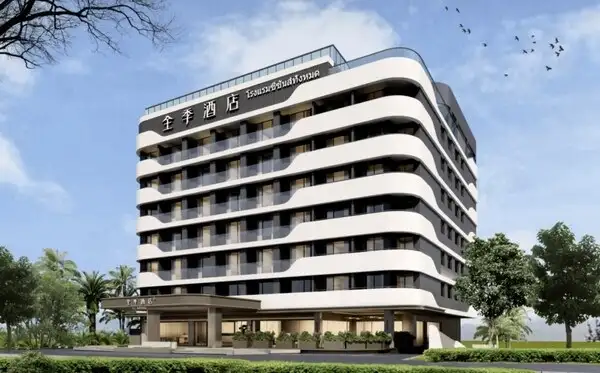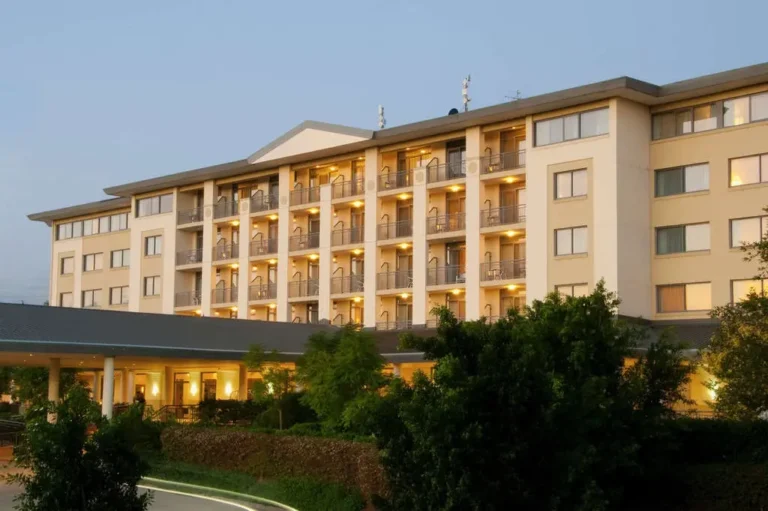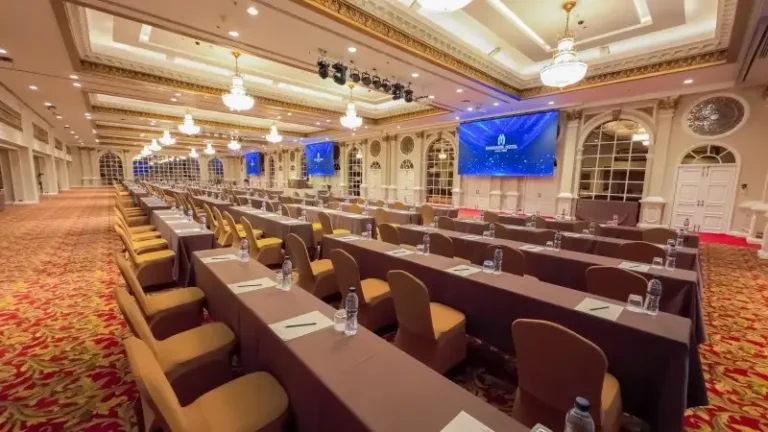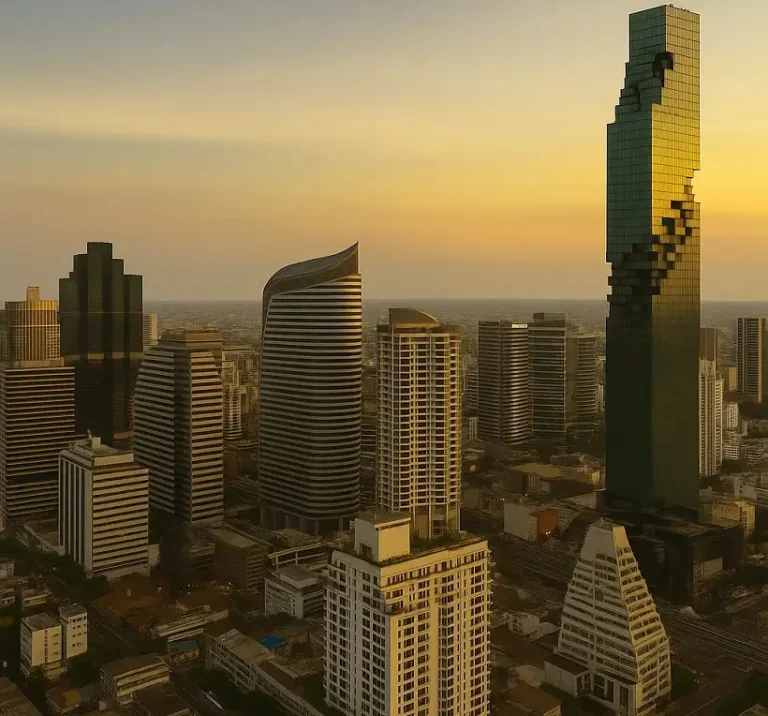
Hotel News: In an age where global anxiety, burnout, and screen addiction are skyrocketing, the hospitality industry is undergoing a quiet but powerful revolution. A growing number of hotels are ditching traditional hospitality models and instead embracing a double-barrelled trend – wellness tourism and analog travel. These two powerful movements are merging into one overarching theme that redefines what modern travelers want: to feel better, think clearer, and genuinely reconnect with themselves and the world around them.

Image Credit: Freepik
From five-star resorts to boutique hideaways, the new gold standard in hospitality is no longer just about plush bedding and fancy cocktails. It is about providing transformative experiences that nourish the body, calm the mind, and restore a sense of presence. This Hotel News report explores how hotels are turning to ancient rituals and low-tech living, blending old-world simplicity with cutting-edge back-end systems to meet the rising demand for health and authenticity.
The Wellness Awakening in the Hospitality Sector
Wellness tourism isn’t just a niche anymore – it’s becoming the new norm. The pursuit of physical, mental, and emotional well-being is inspiring a growing wave of travelers to select destinations that double as sanctuaries for self-care. According to the Global Wellness Institute, wellness tourism is now a multibillion-dollar industry, and it shows no signs of slowing down.
While the concept of wellness travel isn’t entirely new—think Roman bathhouses and Japanese onsen towns—today’s interpretation is significantly more layered and sophisticated. Gone are the days when a massage or sauna sufficed. Modern wellness-focused travelers demand a holistic journey, one that touches every part of their stay—from what they eat and how they sleep, to the environment surrounding them and the digital noise they are allowed to escape.
Hotels have responded by transforming into wellness ecosystems. On-site nutritionists craft personalized meal plans using organic, locally sourced ingredients. Daily schedules include sunrise yoga, forest bathing, guided meditation, cold plunges, and even sound therapy. Guest rooms are increasingly outfitted with circadian lighting, air purification systems, and in-room fitness equipment. Even hotel architecture is evolving, favoring biophilic design that brings nature indoors and encourages mindfulness.
The Evolution of Detox from Digital
Running parallel to this wellness movement is the analog travel trend—a deliberate rejection of our hyper-digital lives. Digital burnout is very real, with people reporting unprecedented levels of stress, distraction, and emotional fatigue due to constant screen exposure. In response, hotels are carving out space for guests to fully unplug and rediscover their senses.
This trend is especially resonant among luxury travelers who are willing to pay a premium for time, silence, and an authentic experience. Hotels like Miraval Berkshires in the United States have led the charge by banning digital devices entirely from public spaces. Guests are instead encouraged to engage in tactile, low-tech activities like journaling with pen and paper, developing film from Polaroids, reading physical books, and even learning forgotten crafts like pottery or calligraphy.
Analog travel doesn’t just soothe digital overload—it reawakens the senses. Guests often report heightened levels of mental clarity, emotional balance, and creative thinking after a few days of tech-free living. More importantly, they reconnect with real human interaction, whether through conversation, touch, or shared experiences in serene natural settings.
Behind the Scenes of a Seamless Wellness Experience
Ironically, the success of this analog and wellness revolution is made possible by invisible technology operating behind the scenes. Luxury hospitality brands are increasingly leveraging AI and automation to perfect guest personalization—without the need for guests to interact with devices. For instance, cloud-based reservation platforms manage room preferences, dietary needs, and spa scheduling in advance, so that upon arrival, guests feel like the hotel “just knows” what they need.
This use of tech extends to logistics too. Staffing, inventory, guest flow, and even treatment room availability are controlled via smart systems that optimize the guest experience while keeping it beautifully frictionless. Behind the dimly lit spa ambiance and handwritten welcome notes is a meticulously orchestrated operation that runs on high-tech precision.
Even in environments marketed as “tech-free,” security and emergency protocols remain digitally enhanced to ensure guest safety. Sustainability also plays a central role, with resorts employing renewable energy systems, composting protocols, and smart climate control to minimize their ecological footprint.
Fusing Wellness and Work in the Age of Remote Living
Another compelling trend is the rise of the “work-wellness” balance. As remote work becomes a long-term norm for many, digital nomads are seeking out destinations that combine productivity with personal care. The result is the emergence of wellness co-working retreats—hybrid spaces where ergonomic workstations exist alongside yoga pavilions and juice bars.
Hotels that offer these hybrid models are meeting the moment by providing everything from high-speed internet and Zoom-ready meeting spaces to wellness-inspired break activities like breathing exercises, walking meditations, and community workshops. In this model, work isn’t a source of stress—it becomes just another element of a harmonious lifestyle curated with intention.
Sensory-Driven Design and Slow Immersion
Today’s wellness and analog travelers are also increasingly prioritizing slower, more immersive forms of travel. Walking pilgrimages, cross-country train journeys, and long-term nature stays are rising in popularity. Hotels situated in remote forests, coastal sanctuaries, and mountaintop retreats are taking advantage of this trend by creating deeply immersive experiences rooted in place and pace.
Instead of fast check-ins and impersonal stays, guests are now welcomed with handwritten notes, invited to forage their own herbs, and offered classes in traditional healing practices. Some resorts go a step further, supplying printed maps instead of GPS systems and encouraging guests to navigate without screens—offering, at most, a “dumbphone” for emergencies only.
A New Era of Intentional Hospitality
What we’re witnessing is a global shift in traveler values. The hotel industry, once driven by luxury for luxury’s sake, is now being reshaped by a more meaningful pursuit—one that centers around intentional living. As people grow more conscious of their health, emotional needs, and digital boundaries, hospitality is being forced to evolve.
This isn’t merely a trend but a renaissance in how we understand travel and its purpose. Whether it’s a wellness retreat focused on deep sleep therapy or an analog lodge where phones are swapped for conversation and candlelight, hotels are now in the business of healing, not just housing.
And as this movement gains traction, it will likely become the default rather than the exception.
The coming years will see even more innovation in how wellness and analog philosophies are integrated into hospitality. Expect to see an increase in sensory-driven environments, spiritual travel experiences, and holistic packages that blend everything from personalized fitness regimens to ancestral healing practices. Meanwhile, behind the soft glow of oil lamps and the hum of singing bowls, intelligent technologies will continue to operate silently, ensuring that every analog moment is perfectly choreographed.
The deeper truth is that people are not just running from digital overload—they are running toward something real. They want to reclaim their time, their breath, and their sense of being human in an increasingly artificial world. Hotels that understand and honor this shift will not only thrive—they will redefine the very future of travel.
For the latest Hotel News, keep on logging to Bangkok Hotel News.
You May Also Like:
Hyatt Expands Boldly Across India and Nepal with Seven New Hotels in 2025 Amid Massive Hospitality Growth Surge
Trumps Tariffs Spark Chaos in the Global Hotel and Travel Sectors





